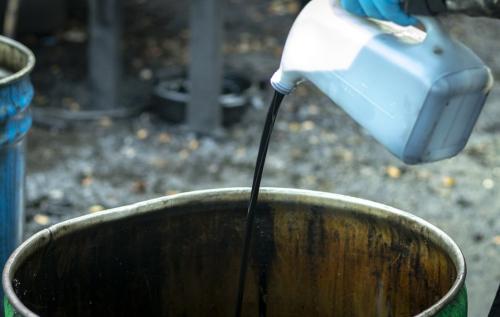6 Different Types of Fertilizers and Their Uses

A good farmer recognizes the importance of quality fertilizer.
Knowing which fertilizer to use for which plants are essential for your plants’
growth. There are two different types of fertilizers, organic and inorganic.
Organic fertilizers are those made from organic and natural materials such as
compost, manure, or plant and animal products. These fertilizers work at a slow
pace over a long period and build up your soil’s nutrients.
Inorganic fertilizers are those made from chemicals that have the
required nutrients. If you are interested in boosting your soil, this is the
best option as they work quickly, but for the short term.
The three primary nutrients include:
- Nitrogen
which is responsible for plant growth
- Phosphate
which strengthens the root and stems as well as the seeding, fruiting and
flowering
- Potassium
helps your plants have stronger and deeper roots. It slows down infection
and improves photosynthesis.
There are six types of fertilizers:
Nitrogenous
Nitrogen is a nutrient that is responsible for proper growth. This
nutrient is useful when added to fertilizers. In the lifetime of a plant, the
middle stage is the one that needs a lot of nudging to continue growing and
produce new leaves. Organic and inorganic fertilizers both contain nitrogen.
Nitrogenous fertilizers are subdivided into four groups:
- Nitrate
- Ammonia
and ammonium salts
- Chemical
compounds with nitrogen
- Animal and
plant by-products
Organic Nitrogenous Fertilizers
These fertilizers consist of animal and plant by-products such as
fish manure, dried blood derived from slaughterhouses and oil cakes. Before the
plants use these fertilizers, bacteria into usable nitrate-nitrogen and
ammonium nitrogen ferment the materials. These fertilizers act slowly and
supply nitrogen to the plants for an extended period. Seek advice from such
experts as MBP Solutions to find out,
which is the best fertilizer for your crops.
Phosphate Fertilizers
Phosphate fertilizers are divided into treated, natural, chemical
and by-product phosphates. There are different types of phosphates:
·
Rock Phosphate: It is found as
natural rock deposits, but very insignificant amounts are used as fertilizer.
Most of it goes into manufacturing superphosphate, whose phosphoric acid is
soluble in water and is used by your crops.
·
Superphosphate, which is made
from ground phosphate rocks, comes in three grades: Single superphosphate,
di-calcium phosphate and triple superphosphate. Single superphosphate is
suitable for most crops and applies to all soils. Use it together with organic
manure if your soil is acidic. Apply while or before sowing or transplanting.
Potassic Fertilizer
Potassic fertilizers are applied to lands that lack potash. Potassic
fertilizers are used in different forms, such as:
- Potassium Chloride (Muriate of
potash): Contains between 50 and 63% of potash. It is absorbed on the
surface and does not leach. Apply before or after sowing
- Potassium sulphate (potassium
sulphate): Costs more as you use magnesium sulphate to treat potassium
chloride, and contains between 48 to 52% of potash. It is soluble in water
and is used by the plants on application. Apply any time up until sowing.
Compound Fertilizers
Compound fertilizers have between two and three nutrients. If
phosphorus and nitrogen are missing in the soil, compound fertilizers are used,
such as amorphous. It is composed of 16% nitrogen and 20% Potash. You can mix
the two fertilizers in the proper proportion to get the compound fertilizer.
Since compound fertilizers are not suitable for all soils, this
means a mixture of different fertilizers with different qualities is applied to
the soil depending on the soils’ needs. The combination removes the need to use
the fertilizers separately and saves on labor.
Complete
Fertilizers (NPK)
These mixtures contain the three principal nutrients i.e. Nitrogen,
Phosphate and Potassium, and are referred to as complete fertilizers. Most
soils typically lack these three nutrients, and most manufacturers make special
mixtures for different plants.
Conclusion
Farming or even simple gardening is a full-time job of discerning
what your plants need. If you do not know your soil type and which fertilizer to
use, your pants will not grow strong and healthy. Find out your soil type and
the type of fertilizer you need for each plant.
Post Your Ad Here
Comments